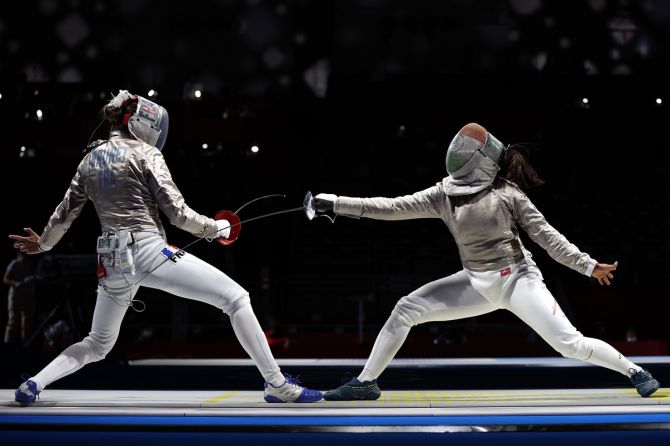 | « Back to article | Print this article |
India's first Olympics fencer began her Tokyo campaign with a confident 15-3 win over Tunisia's Nadia Ben Azizi.

Bhavani Devi's Olympic debut ended with a second round defeat in the women's individual sabre event on Monday, but the Indian trailblazing fencer bowed out of the Tokyo Games with much promise.
The 27-year-old Tamil Nadu lass, the first fencer from the country to qualify for Olympics, began her campaign with a confident 15-3 win over Tunisia's Nadia Ben Azizi, but bumped into world No. 3 Manon Brunet, a Rio Olympic semi-finalist, in the next round, which she lost 7-15.
Bhavani's aggression yielded points against Azizi but French Brunet used all her experience to negate the tactics of the Indian, who lost two points for going out of the arena.
She could score only one point each in the first two periods but came back well in the third.
Brunet was sharp and had better technique as she scored points from distance.
After trailing 2-8 going into the third and final round, Bhavani needed nothing short of a spectacular show in the final one but Brunet largely remained untroubled while winning in nine minutes and 48 second.
In the opening round though, Bhavani was the better fencer, taking advantage of Azizi's open stance that allowed her score points quickly.
She did not concede a single point in the first three-minute period and raced to a commanding 8-0 lead.
Nadia managed some touches in the second period but the Indian kept building her lead to win the contest in six minutes and 14 seconds.
The fencer who touches the 15 point-mark first, is declared winner.